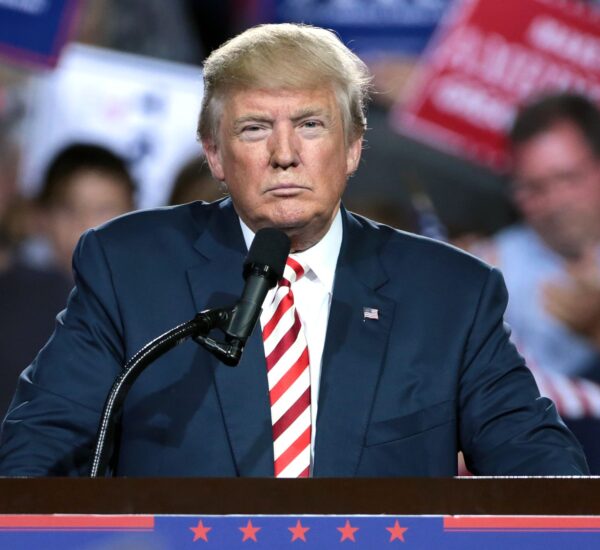Trump’s Plan To Bring U.S. Manufacturing Back
Former President Donald Trump recently unveiled an ambitious strategy to revitalize American manufacturing, introducing a proposal that emphasizes lower taxes and the creation of a dedicated “manufacturing ambassador.” This plan, outlined in an op-ed published in Newsweek, aligns with Trump’s consistent messaging on economic growth and job creation, aiming to restore the manufacturing sector’s strength in the United States.
Trump’s plan is straightforward: “The United States will offer the lowest taxes, the most affordable energy costs, minimal regulatory burdens, and unrestricted access to the largest market in the world—provided you produce your goods here and employ American workers.” Central to this initiative is a significant reduction in the corporate tax rate from 21% to 15% for manufacturers based in the U.S. Additionally, Trump proposes expanded research and development tax credits to incentivize investment in domestic factories.
To further stimulate this shift, Trump suggests establishing “special zones” on federal land that would feature ultra-low taxes and streamlined regulations to attract industries back to America. He emphasizes the need to expedite environmental approvals to utilize domestic resources effectively.
A key component of his strategy is the appointment of a Manufacturing Ambassador, whose mission would be to engage with global manufacturers and encourage them to relocate their operations to the U.S. This role is designed to ensure that pro-manufacturing policies have a strong advocate on the international stage.
In his op-ed, Trump did not hold back in criticizing Vice President Kamala Harris and the current administration. He labeled her the “Tax Queen” and condemned their policies as detrimental to American workers. He specifically targeted the Inflation Reduction Act, accusing Harris of supporting tax breaks for companies that move production overseas, a move he argues harms American job opportunities.
While the Biden administration has implemented measures to support domestic manufacturing, including infrastructure bills requiring American-made materials, Trump believes that his plan will better address the needs of the manufacturing sector. He has made it clear that he intends to address trade imbalances by raising tariffs, particularly against China, asserting that this strategy will protect American jobs and industries.
In this election cycle, Trump is doubling down on his commitment to manufacturing, aiming to draw stark contrasts between his vision for America and that of his opponents. By focusing on revitalizing American manufacturing, he seeks to not only boost the economy but also to inspire a renewed sense of national pride in homegrown products and jobs.






